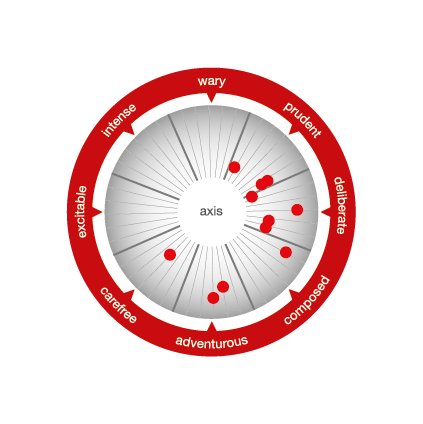Risk Type Differences On The Board
The Situation
Board members for a high-profile global charity came from a wide variety of professional backgrounds and industries, and included a barrister, pilot, and finance director with backgrounds in education, manufacturing and HR consultancy. Following the appointment of new board members, significantly contrasting opinions within the group were beginning to create issues. Perceptions of risk to the business and what was deemed acceptable varied considerably; a lack of understanding of how other board members viewed and approached key business objectives meant arriving at a consensus decision was difficult. Decision-making was in danger of becoming time-consuming and arduous.
The Solution
The board completed the Risk Type Compass assessment and a group session was arranged to discuss the results. It became clear that, even at this level of experience and responsibility, it can be difficult to appreciate just how varied peoples’ attitudes to risk can be, or to gauge one’s own risk disposition relative to others. In this situation, opposing views may be interpreted as contentious or even wilfully obstructive.
The group session facilitated a good debate and open positive discussions around Risk Type and how these dispositions influence each board member’s view of business risk. With the clarification of Risk Type distinctions, including strengths and potential blind spots, a strong consensus began to develop regarding fellow board members and where they each fell on the Risk Type Compass.
The Results
Board members developed an appreciation of the potential for individual biases in perception of risk. Even when presented with the same data, not everyone has the same outlook regarding potential risks and different people may come to very different conclusions. Reflecting on the Risk Type Compass group results, using the Group Report, had helped to highlight how people are influenced considerably by their pre-disposition to risk, engendering different but legitimate viewpoints. The session improved board member appreciation of other risk dispositions and the potential benefits that may accrue when these differences in perception are openly appreciated and embraced.
Situation
• A board of directors had very different ideas of what constituted acceptable levels of risk
Solution
• Members of the board undertook the Risk Type Compass assessment to inform a group session
Results
• The session and the assessment allowed the board members to gain a greater understanding of how each other viewed and tackled risk, improving board member relations

Download a PDF of this Case Study here.